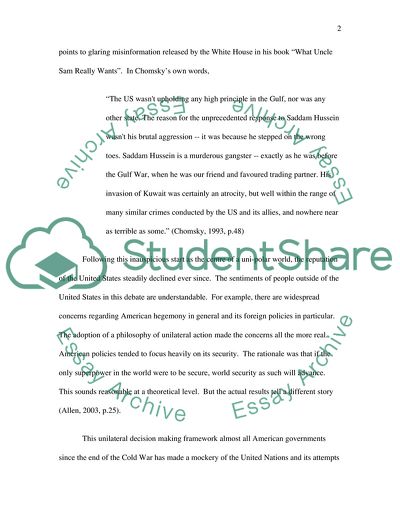Cite this document
(The USA after the End of the Cold War Literature review, n.d.)
The USA after the End of the Cold War Literature review. Retrieved from https://studentshare.org/history/1715044-since-the-end-of-the-cold-war-the-united-states-has-been-alone-in-the-world-no-state-or-combinations-of-states-provides-an-effective-counterweight-kenneth-wa
The USA after the End of the Cold War Literature review. Retrieved from https://studentshare.org/history/1715044-since-the-end-of-the-cold-war-the-united-states-has-been-alone-in-the-world-no-state-or-combinations-of-states-provides-an-effective-counterweight-kenneth-wa
(The USA After the End of the Cold War Literature Review)
The USA After the End of the Cold War Literature Review. https://studentshare.org/history/1715044-since-the-end-of-the-cold-war-the-united-states-has-been-alone-in-the-world-no-state-or-combinations-of-states-provides-an-effective-counterweight-kenneth-wa.
The USA After the End of the Cold War Literature Review. https://studentshare.org/history/1715044-since-the-end-of-the-cold-war-the-united-states-has-been-alone-in-the-world-no-state-or-combinations-of-states-provides-an-effective-counterweight-kenneth-wa.
“The USA After the End of the Cold War Literature Review”. https://studentshare.org/history/1715044-since-the-end-of-the-cold-war-the-united-states-has-been-alone-in-the-world-no-state-or-combinations-of-states-provides-an-effective-counterweight-kenneth-wa.


